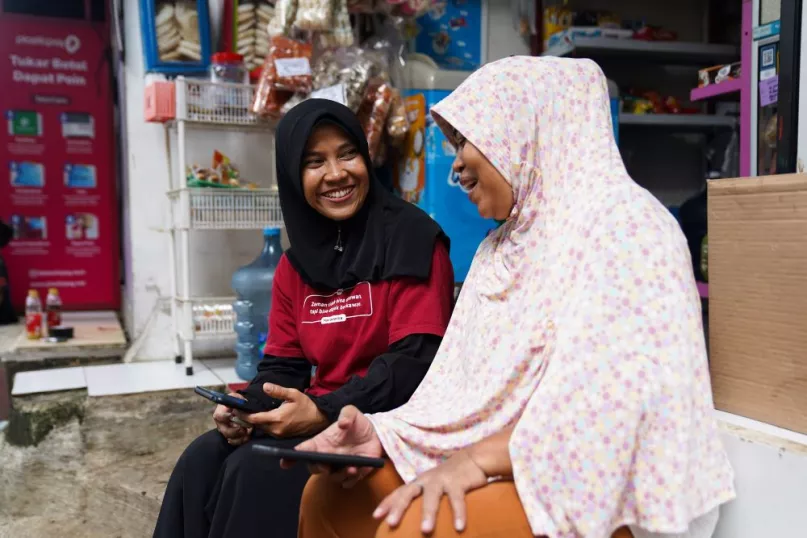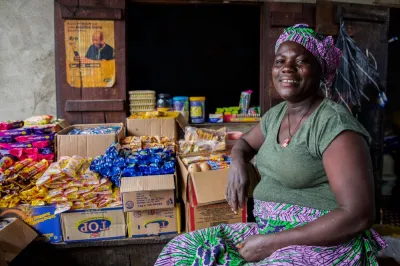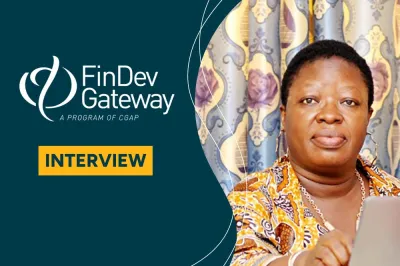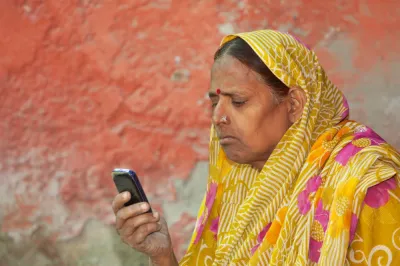Agent Gender Matters… for Customers

In our previous blog post, we argued that agent gender matters for business performance and ended with the question: What does this mean for women customers? In this blog, we consider that question, looking at the evidence on whether the gender of the agent matters for women’s financial inclusion. We explore this question by asking not only whether the gender of the agent matters for results (increased women’s financial inclusion), but in what contexts, for whom and in what ways.
Agent gender matters in contexts where gender norms restrict women’s interactions and opportunities
While research on this topic is very limited, It especially matters where restrictive gender norms dictate if and how women can engage with men.
In the
Agent gender matters when women are given the choice
In Bangladesh, over half of female customers would prefer dealing with women agents, finding them to be more approachable, trustworthy and secure. Women’s World Banking research in Bangladesh also confirmed that women customers feel more comfortable with women agents. In India as well, women perceive men as less approachable and feel more comfortable trusting women agents with sensitive financial information.
In the Democratic Republic of Congo, an analysis of MFI agent banking transactions found that female customers were 7 percentage points more likely to transact with female agents than with male agents. Of particular interest was the finding that women are more likely to carry out larger transactions if the agent is a woman, and are more likely to go to women agents when they have high account balances – indicating a higher level of trust with female agents.
Trust is an important issue for women customers. Research with women in seven countries found that women purposefully look for trusted agents: neighbors, relatives, members of their tribe or community members with a good reputation. In Africa and South Asia (including in Bangladesh, Burkina Faso, and Kenya), women were found to be more vulnerable to cyber fraud, online harassment and stolen identity – making the issue of trust all the more important to them.
Besides trust, customer service is another area women customers prioritize, and where they may prefer women agents. In India, for example, women customers feel that women agents put more effort into creating a better customer experience. Women are more likely to ask more questions and need more time and support, and women agents may be better placed to respond to these needs.
Agent gender matters for hard-to-reach customers, who are otherwise left unserved
In India, around half of Bank Sakhis’ (women agents) customers are women, compared to 35 percent of other agents’ customers. Unpublished CGAP research into the Bank Sakhi model in Bihar state reveals that, compared to other agents, Bank Sakhis cater to more vulnerable and hard-to-reach customers, including the elderly and those living in remote rural areas. In Kenya and Côte d’Ivoire, the availability and proximity of agents as access points is the most crucial enabler of women’s usage of financial products, particularly in areas without formal banks’ presence. These findings suggest that women agents can be critical in helping to fill gaps in CICO agent networks, helping services to reach not only women, but other last mile customers.
In the end, agent gender matters for women’s financial inclusion
When looking at efforts made to increase the number of women agents, there is some evidence pointing to positive results related to reach, retention and use of CICO by women. In Egypt and Jordan, where an all-female network was piloted, the use of women agents increased awareness and trust in DFS services, enabling Payment Service Providers (PSP) to reach and retain additional women customers. In Rwanda and Pakistan, the presence of women agents increased use of DFS by women. In Pakistan, where norms discourage engaging with men, it was found that increasing women agents had a positive impact on women’s uptake of mobile wallets.
Women agents are part of the solution to the CICO gender gap
In conclusion, the available evidence suggests that, On-the-ground efforts need to understand key social norms that dictate interactions between men and women, and the mechanisms that matter for results. Coupled with the positive evidence on women’s performance presented in our previous blog, there is no solid reason for not increasing women’s engagement as agents, and plenty of compelling reasons for doing so. Not only do they perform as well as - or better than - men, but they are also preferred by women customers in many contexts.


